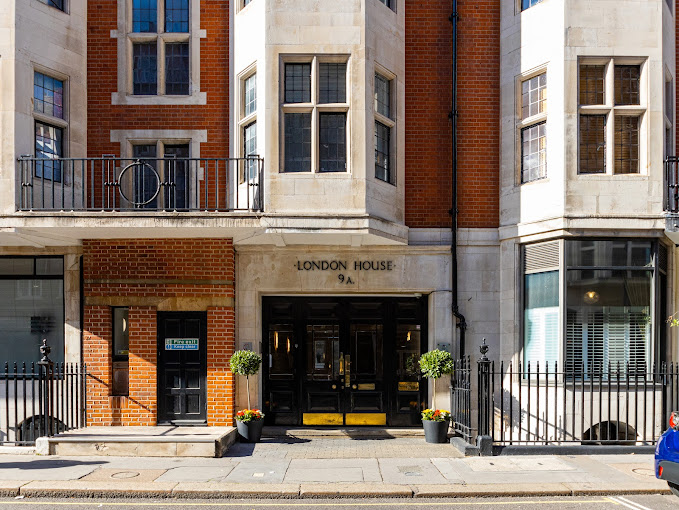6 factors affecting a business location you can’t afford to ignore

6 factors affecting business location:
- Accessibility and transport links
- Proximity to clients and business partners
- Safety and security of the area
- Cost of office space and utilities
- Competitor office locations
- Availability of human resources
Why are they?
We know that running a successful business involves lots of moving parts. Before setting up your physical location and accepting clients, you must first understand the nature of your target market and whether the area you have in mind supports your niche and business growth. If that sounds like a lot of work, it’s because it is. We’ve compiled the essential considerations that influence where businesses choose to operate; factors that can shape your growth, customer access, and operational efficiency.
Accessibility and transport links
A good business premises should be accessible. However, an ideal one should be not only accessible but also well-connected to key areas in and around the town or city to ensure easy commutes for employees and convenient access for clients. A location close to public transportation systems such as trains, subways and buses often enjoys heavy foot traffic, which is especially beneficial for businesses like cafes, restaurants, salons, etc. Some companies may also do well in tucked-away areas, but those are the outliers; plus, they must still be easy to reach from major highways, train stations or airports.
See more: What line is Great Portland Street on?

Availability of human resources
At the heart of every business are the trained personnel who offer products and services to clients. Any company looking to scale must always ensure its human resources side is exceptional. This is only possible if you can access a qualified and committed talent pool that is ready to join your company and push the business forward.
New entities often need to strike a delicate balance between expenditure and budget allocation, considering that hiring top talent is costly. This is why setting up your business in an area with easily accessible talent can be a game-changer. Other factors to consider are cultural fit and work-life balance, which are key considerations shaping the world of work.
Proximity to clients and business partners
Depending on the nature of your business, you may need to meet with clients regularly. If your business location is tucked away in some remote setting, the logistics can quickly become a huge hindrance. A solution is to consider the nature of your business and be realistic enough to make accurate estimations on the long-term cost of inconvenience before choosing a location.
Cost and time savings on travel for either you or the client can add up over time, which may discourage future transactions. Choosing an ideal business location that is easily accessible, such as a prestigious business district, can also impact your credibility, making it easier to win and convince clients to work with you.
Safety and security of the area
When most people think of the safety and security of their business, the first thing that comes to mind is setting up security systems and hiring security personnel. But this is just the icing on the cake. The real solution is to look for a secure location that makes it easy to run your business without having a lot at risk.
Areas considered safer often attract the best talent because they don’t have to worry about reporting earlier or leaving the office late. These areas also have lower insurance premiums, which will tend to attract quality clients who prefer transacting in safer neighbourhoods.
When you think of it, there’s nothing to lose when you choose an upscale, secure office location over one where safety lies in how much you have invested in your security systems and team. That said, you must still invest in the right security systems and competent teams regardless of the location.
Cost of office space and utilities
This is perhaps the one area most people will focus on. The actual cost of office space goes beyond rent and utility costs like water, electricity, and internet, including subtle or otherwise hidden expenses like taxes, maintenance, convenience, etc.
Large companies and organisations with a well-defined roadmap and a stronger financial muscle often prioritise long-term financial goals like cost savings and ease of scaling compared to start-ups and SMEs. This is where flexibility means something different for everyone. For a small business, flexibility could mean finding a co-working space or a serviced business apartment, while for a large corporation, a Category A fit-out could be the most ideal and flexible option.
Simply put, the actual cost of office space comes down to how you define the expenses and what the cost factors look like. If a high upfront rental fee is a deal breaker for your business, it would only make sense to choose an office space you can afford to lease both in the present and future.
So, while location plays a key role when it comes to cost, the main contributing considerations are the operational aspects of the business itself.
See more: How do you calculate office space?
Competitor proximity and market positioning
Before making up your mind, you want to first compare the other office locations in similar areas to understand the opportunity cost of each. No one place is perfect over another, but there are factors that you will prioritise over the rest. Once you find locations that meet most of your needs, it is only fair to place those choices above others.
The 6 influences we have highlighted above will all come into play when making the final comparison. To ensure accuracy, you want to use facts and figures instead of estimations and assumptions. For instance, when comparing the cost of office spaces, look for actual and up-to-date statistics from trusted sources.
Ultimately, selecting the right business site goes beyond cost – it’s about strategic alignment with your growth goals, access to customers and staff, and positioning within your industry landscape. By weighing both tangible and intangible location criteria, you’ll make a choice that supports long-term success.
See more: Choosing best areas to work in London